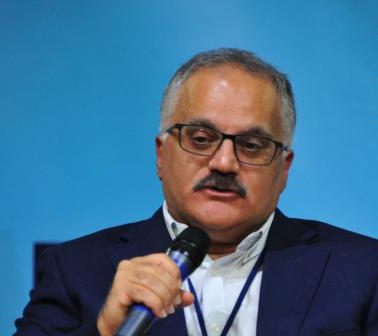El-Zobaidi on Minimizing Car Use & Expanding Knowledge

Everyone wants to eat now, not to read. One wants to fill up the car’s petrol tank, not go to a cultural event
I do not know if the quandary reflected by the pervasive disinterest in culture across the Arab world will worsen with the recent crisis due to deterioration of living conditions.
The average person in the region tells you that access to culture comes at a cost that the man in the street cannot afford. Arabs have long evaded the issue and refused to acknowledge that the problem is one of lack of interest and not of shortage of financial means. What kind of cost is involved and how does it compare to income levels in the Arab world? This seems like a rhetorical question that really has no adequate answer.
To begin with, and to address the issue objectively, one should exclude the citizens of the Gulf region from any concern for high cost. Income levels in the Gulf countries, both for national and a reasonable percentage of Arab expatriates, are high. It is hard to imagine that buying a book, a magazine or a theatre ticket is a problem that could wreak havoc on anyone’s monthly budget in the Gulf. That was the case before the living conditions crisis erupted and is still the case today. I do not think that a ticket for a theatre show is more expensive than a ticket for a Nancy Ajram, George Wassouf, or Muhammad Ramadan concert. These artists’ shows are sold out and organisers do not need much promotion to draw a large attendance. At the same time, admission to museums and galleries in the Gulf region is free or almost free, but visitors do not crowd the exhibition halls.
The argument that was invoked even before the situation became dire for citizens of the Arab world was that books are expensive. Any book is expensive. If it is sold for one dinar, five dinars, or ten, it is still deemed expensive. The Arab world did away with basic publishing rules because of this recurring complaint. Authors started paying publishers to print and distribute their books. Publishers have become mere printing enterprises. Bookstores are closing, even in capitals known for their loyal reading public. A few months ago, the Antoine Library in Beirut closed, and before that, The Way In bookshop, too. The COVID-19 pandemic has made it easier for booksellers to reach such fateful decisions. But it was a delayed decision based on the lack of serious reading habits in the Arab world. We have not heard for a long time of a new bookstore opening. A handful of readers, not to be associated with intellectuals, insists that libraries shall remain open.
The public libraries themselves, where borrowing is free or for a nominal annual fee, suffer from a shortage of visitors. This has been the case before all crises and prior to the epidemic and even before the argument that the internet provided alternatives to reading books. No one wants to say why public libraries in the West, where the internet was conceived, are crowded while the halls of our own public libraries are empty.
What is said about the cost of a book, can also be said about admission tickets to theatres, exhibitions, museums and cinemas. What unsettles young actors, no matter how dedicated they are, is that after rehearsing for months, their play ends up being shown for one week at most. In the face of such bitter theatrical and artistic realities, there is no longer room for any art critique. The practice now is simply that critics commit to write about those who commit to writing about them.
The storm has now come full circle. If you ask the average Arab about his cultural interests, the inevitable reaction is a deaf-language gesture pointing to the mouth. Everyone wants to eat now, not to read. One wants to fill up the car’s petrol tank, not go to a cultural event. People in the West have been deeply worried about not being able to afford gas and electricity in what they fear is a looming harsh winter. What can one say to people in the Arab region when they have similar fears and invoke the same arguments? These are instinctive arguments having to do with survival. Culture, whether it is buying a book or attending an exhibition, is a luxury that has no place in a time of hurricanes.
Undoubtedly, no one will bother to ask a simple question: have we reached this point because we had allocated no time for reading? The prevailing collective awareness in the last two decades is an oral awareness created by satellite TV channels, or tweets on social media platforms in a broken Arabic syntax where sentences do not exceed 150 characters. The anger fleshed out by this oral awareness is one of political anger against the regimes, but it is certainly not the type of anger directed against oneself for failure to keep pace with the times. Fatalism is a way of life that goes along with aversion to knowledge. It is a deep mental surrender, the natural consequence of which is the deaf-language gesture that points to the mouth and not to the top of the head. The passivity of the Arab region towards the spread of epidemic, drought and hunger is just amazing. Why then does anyone expect a positive response to stop the tidal wave of backwardness from advancing any further?
Haitham El-Zobaidi is chairman of Al Arab Publishing House. He is also chairman and publisher of The Arab Weekly and Al-Jadeed magazine.
Want to chase the pulse of North Africa?
Subscribe to receive our FREE weekly PDF magazine













